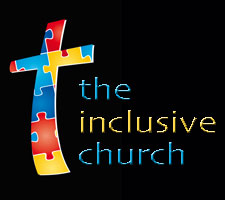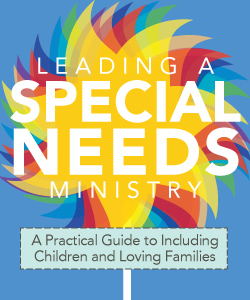Barna Group, church safety, David Kinnaman, Jim Wideman, Risk Management, Safety in Special Needs Environments, Safety Practices in Church, Screening Volunteers for Children's Ministry, Volunteers, Volunteers that Stick
More on Safety in Children’s Ministry – Part 1
The earlier post on Safety in Children’s Ministry has quickly become one of the more popular entries on this blog. I am pleased to be part of a growing dialogue bringing a heightened focus on church safety. Currently churches are exempt from most regulation governing commercial childcare. Our society places an implicit trust in churches. And with this trust comes responsibility. It is the duty and obligation of every church to ensure that the children’s ministry caregivers and environments are equipped to provide safe care. While Bible teaching is the real call of the church, its importance becomes secondary if a congregation fails to create and maintain a safe environment, especially for children.
In late 2007 the Barna Group released a study, “Many Churches Neglect to Screen Those Working with Children and Youth.” The study’s findings revealed that fewer than half of the interviewed pastors said their church “specifically and regularly evaluates safety and security issues affecting the church” (39%) and only one-quarter said their church “thoroughly communicates with attenders about safety and security issues” (28%). In the same report detailing the study’s findings, Barna group President David Kinnaman noted the value parents’ place on perceived safety when considering attending a church, “One of the most common questions we’re asked by churches is how to attract new people. Our research consistently shows that how a church treats children is one of the keys to drawing and retaining new families.”
Because children with special needs are at greater risk when it comes to safety compromising situations (medical emergencies, physical accidents, and sexual misconduct), the importance of creating a safety minded culture cannot be stressed enough for a church called to special needs inclusion. What follows in this post and the next post are areas of vulnerability that I have on occasion observed inside children’s ministry settings. The purpose of this post is not to “call out” any single church but to hopefully continue the dialogue for improved church safety benefitting typical children and children with special needs.
Lack of Training or Orientation
Many churches will put a volunteer to work the Sunday after they agree to help. What church isn’t in desperate need of childcare assistance? However, when a volunteer starts serving without any guidance, the risk to the children and the liability to the church unnecessarily increase. Well-meaning volunteers may unknowingly violate any number of safety minded policies (2-person rule, accepting a child with a skin rash like MRSA, etc). And as a result a child’s safety may be compromised and a volunteer may put himself or herself at risk for a perceived indiscretion.
A volunteer orientation is so important – if nothing else to familiarize caregivers with the procedures to follow and the faces to look for when problems arise. Besides safety concerns, what classroom hasn’t had an unexpected visit from the stomach bug or a behavior challenge necessitating staff intervention?
Let’s be real. No childcare worker has heard every church rule or common sense pointer needed for their service inside the children’s ministry. While few if any volunteers read a children’s ministry manual front to back, those handbooks are helpful when the inevitable and challenging situations arise. Handbooks are the permanently available road maps for children’s ministry service and their value should not be underestimated. Jim Wideman’s book Volunteers that Stick (Group 2004) provides a wonderful outline for such a guidebook as well as great ideas and explanations for the policies and practices it should cover.
See the post General Children’s Ministry Policies & Procedures for a link to an example handbook.
Use of Teens as Volunteers
I’m a big fan of using teens as special needs buddies and helpers in a children’s ministry. Unfortunately I have also witnessed the chaos that can develop when teens are not screened, trained, or monitored. Without careful screening and admnistration, children’s ministry settings CAN become havens for teens who simply want to skip the worship service. Teen help is better managed when the following parameters are in place:
- Teens are required to apply for volunteer childcare positions and references are checked.
- Service in children’s ministry settings is considered an “honor”. Qualified teen applicants are selected and those lacking the appropriate skills are graciously turned down for service.
- Approved teens are required to wear visible identifiers (church issued name tags) alerting parents and teacher which teens are approved to be inside children’s ministry environments.
- Teens receive a consistent service assignment placing them in the same environment weekly (same adult teachers and same children).
- The number of trained adult volunteers should outnumber teens in a given environment.
- Teens should understand that they are under the authority of the adult teachers.
- Teens are required to participate in training geared toward equipping them for their role and addressing issues within their age and culture (no cell phone use, texting, pictures, toileting issues, horseplay etc).
Stay tuned for More on Safety in Children’s Ministry – Part 2, where I will spotlight safety concerns related to:
- Check-In
- Check –Out
- Transitions and Taking Children Outside of Classrooms
- Use of Commercial Buggy Strollers
- Adult Visitors Inside of Classrooms
Like this post or any of its content? See Rules for Repost.
From → Kidmin




Amy,
I’m so glad you’re having this conversation. Several times, people have asked me (not sure why they asked me actually, but they did) what the minimum requirements are for children’s ministries under the law. My reply is always the same, first I think it is good to know what the laws are governing what you’re doing whether that’s children’s ministry, driving, or fishing (I do two of those three). As citizens, we have a responsibility to know the law and to adhere to it. Secondly though, and I think more importantly, the laws of the state you live in should NOT be your guide in terms of setting standards. Yes, you should adhere to them – that’s a biblical mandate. But, our standards as a church should be SO MUCH higher. I cringe at conversations about “what do we HAVE to do” to meet requirements as if that is all we SHOULD do. God has a high view of children and places a great deal of trust in those of us he puts in their lives (see, for example, Matthew 18:6). Out standards should meet God requirements, not the state’s.
Obviously, God can work however he wants to and he is bigger than the mistakes of man, but I agree with your assessment that “While Bible teaching is the real call of the church, its importance becomes secondary if a congregation fails to create and maintain a safe environment, especially for children.” Imagine the damage (potentially eternal damage) if something happens to a child in a place where they are meant to learn about the love of God. I can only imagine the impact that has on, not only the child, but the family and loved ones of the child as well.
Thanks for continuing to write about this critical issue. Keep up the great work!
Wayne Stocks
Dad in the Middle (http://waynestocks.com)
Kidmin1124 (http://Kidmin1124.com)
Security has to be a priority. All of our HUGS disability volunteers, regardless of age, must come through training prior to begin serving and at least once a year thereafter.We offer it four times a year, so there should be no reason for someone to miss. If they fail to meet the training requirement, they are placed on inactive rosters and not permitted to serve in HUGS until they have come back through training. We cover areas such as ministry protocol, check-in/out procedures, communication and behaviors.
In order to be a one-on-one assistant, volunteers must be 15 years old or older. We will use 13 and 14 year olds, but they will be attached to a mentor (older, more seasoned HUGS volunteer) until they are 15 and until we see the maturity level necessary to be set free as a one-on-one.
Our church also uses a computerized check-in/out system which is linked to our database. All students from infancy through high school (including HUGS) must check into their appropriate classes. Parents are given a security tag with their student’s number on it in case of emergency. In order to retrieve their student, they must present that tag. If they misplace it, they must return to Guest Services and produce a valid driver’s license. (We purposely make it a little painful for them so that we don’t have this situation that often!).
All volunteers in our HUGS disability ministry, Children’s and Student ministries must complete volunteer applications, have references checked, and for those 18 and older, must submit to a criminal background check. We will repeat the background check every 5 years. It’s expensive, but so worth it for the peace of mind it brings.
Wayne – Thanks so much for your support on this issue.
Sandy – I appreciate you for sharing the specifics of your program. Unfortunately some churches fear negative backlash (from some parents or a few volunteers). As a result there are churches out there that fail to instill and/or enforce safety minded policies.
Thanks for “speaking out” here with these GREAT practices!